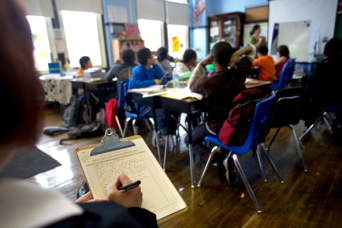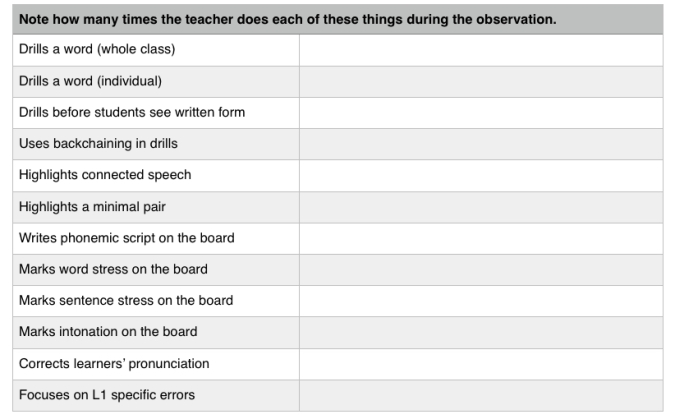Phew.. it’s been a rollercoaster couple of weeks/months since I came back to Dublin. I’ve taken on a new job – the transition to admin has become permanent, so I’ve been doing lots of interesting jobs over the past while that I’ve never done before. The first one I’d like to talk about is organising observations.
 In the first week that I was back I went to the fortnightly staff meeting to try and catch up on what I’d missed. The hot topic that week was observations – apparently a regime of ‘pop-in’ observations had been implemented and teachers felt in fear of their lives that someone might come in to their class to observe at any moment. Suffice to say, the atmosphere wasn’t great. I, as part of my new role, was given responsibility for observations and professional development so the mess landed on my lap.
In the first week that I was back I went to the fortnightly staff meeting to try and catch up on what I’d missed. The hot topic that week was observations – apparently a regime of ‘pop-in’ observations had been implemented and teachers felt in fear of their lives that someone might come in to their class to observe at any moment. Suffice to say, the atmosphere wasn’t great. I, as part of my new role, was given responsibility for observations and professional development so the mess landed on my lap.
The first thing I noticed was that the link between observation and development had been severed. Teachers weren’t thinking of being observed as an opportunity to learn something, they were treating it as if they were being tested and getting nothing from it. From the observers point of view, they seemed to be viewing the observations as opportunities to pick apart teachers’ abilities and be rather critical of the standard in the school as a whole. The attitudes on both sides were a little unhelpful and there certainly wasn’t much happening in terms of constructive development. I have made it my business to try to address this issue and hopefully help teachers see the benefits and help observers do their job without judgement.
The first thing I did was stop the pop-ins until I could get a handle on what was going on. This relieved the tension the teachers were feeling and gave me a chance to start the dialogue from a different position, one where they felt less pressure. The next thing I did was start talking about development loudly, to anyone that would listen and I made sure to mention how observations were one of the best ways to diagnose areas for improvement. Finally, I prepared a document explaining the links between observations and development and circulated it to staff for them to understand the processes and rationale a bit better.
“Remember “I wouldn’t do it that way,” is no reason to say another shouldn’t”
That, hopefully, took care of the teachers, now what about the observers? Its hard for teachers-turned-managers to resist imposing their own teaching style on what they see in observations, but it’s so vital to remember that “I wouldn’t do it that way,” is no reason to say another shouldn’t. As an observer you have a responsibility to the teacher and the learners to be as impartial as possible. The best way to do this, I think, is to use observation tasks that measure facts. With that in mind I designed and adapted tasks from a variety of places (see references below) to look at different areas of teaching and learning. For example, one task measures how many follow up questions a teacher asks after each student utterance. Another asks how many times a teacher uses a particular technique to deal with pronunciation. What they all have in common is that they deal with measurable things.
Because the tasks deal in absolutes (5 times, 10 minutes, 3 questions etc.) they take the opinion out of the process. Afterwards, the teacher and the observer can have a conversation on whether they think something is good or bad, but the results of the observation will be indisputable. I think this moves the observation away from being a question of judgement and towards one of being a question of interpretation and principled decision making.
I hope that these changes will help to highlight the benefits of observation for teachers and discourage observers from being too judgemental but only time will tell. What do you think? Have you had similar issues in your school? Do you like being observed? Do you find yourself being judgemental when you’re observing?
References:
Richards, J.C. and Farrell, T.S.C. (2005) Professional Development for Language Teachers. Cambridge.
Scrivener, J. (2012) Classroom Management Techniques. Cambridge.
Wajnryb, R. (1993) Classroom Observation Tasks. Cambridge.
